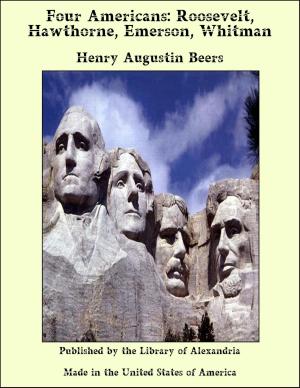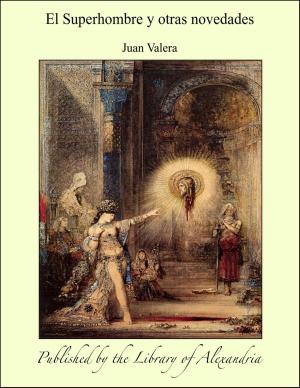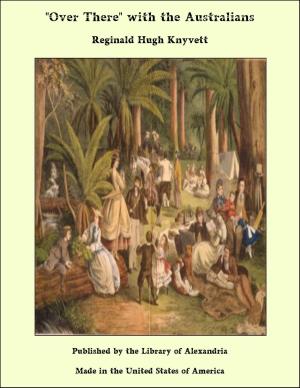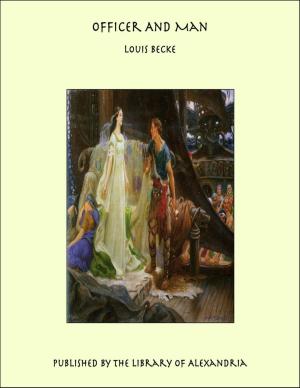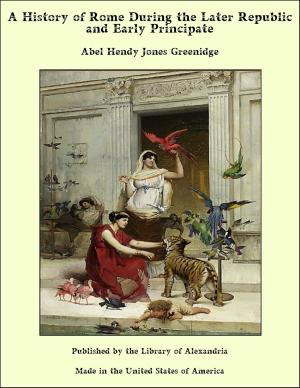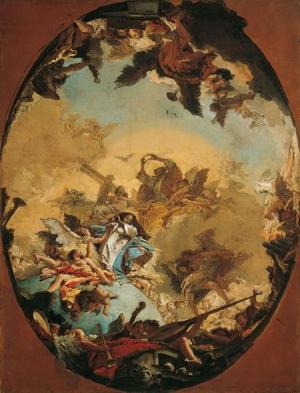The 'Patriotes' of '37: A Chronicle of the Lower Canada Rebellion
Nonfiction, Religion & Spirituality, New Age, History, Fiction & Literature| Author: | Alfred Duclos DeCelles | ISBN: | 9781465555878 |
| Publisher: | Library of Alexandria | Publication: | July 29, 2009 |
| Imprint: | Library of Alexandria | Language: | English |
| Author: | Alfred Duclos DeCelles |
| ISBN: | 9781465555878 |
| Publisher: | Library of Alexandria |
| Publication: | July 29, 2009 |
| Imprint: | Library of Alexandria |
| Language: | English |
CANADIANS, OLD AND NEW The conquest of Canada by British arms in the Seven Years' War gave rise to a situation in the colony which was fraught with tragic possibilities. It placed the French inhabitants under the sway of an alien race—a race of another language, of another religion, of other laws, and which differed from them profoundly in temperament and political outlook. Elsewhere—in Ireland, in Poland, and in the Balkans—such conquests have been followed by centuries of bitter racial warfare. In Canada, however, for a hundred and fifty years French Canadians and English Canadians have, on the whole, dwelt together in peace and amity. Only on the one occasion, of which the story is to be told in these pages, has there been anything resembling civil war between the two races; and this unhappy outbreak was neither widespread nor prolonged. The record is one which Canadians, whether they be English or French, have reason to view with satisfaction. It does not appear that the Canadians of 1760 felt any profound regret at the change from French to British rule. So corrupt and oppressive had been the administration of Bigot, in the last days of the Old Regime, that the rough-and-ready rule of the British army officers doubtless seemed benignant in comparison. Comparatively few Canadians left the country, although they were afforded facilities for so doing. One evidence of good feeling between the victors and the vanquished is found in the marriages which were celebrated between Canadian women and some of the disbanded Highland soldiers. Traces of these unions are found at the present day, in the province of Quebec, in a few Scottish names of habitants who cannot speak English. When the American colonies broke out in revolution in 1775, the Continental Congress thought to induce the French Canadians to join hands with them. But the conciliatory policy of the successive governors Murray and Carleton, and the concessions granted by the Quebec Act of the year before, had borne fruit; and when the American leaders Arnold and Montgomery invaded Canada, the great majority of the habitants remained at least passively loyal. A few hundred of them may have joined the invaders, but a much larger number enlisted under Carleton. The clergy, the seigneurs, and the professional classes—lawyers and physicians and notaries—remained firm in their allegiance to Great Britain; while the mass of the people resisted the eloquent appeals of Congress, represented by its emissaries Franklin, Chase, and Carroll, and even those of the distinguished Frenchmen, Lafayette and Count d'Estaing, who strongly urged them to join the rebels. Nor should it be forgotten that at the siege of Quebec by Arnold the Canadian officers Colonel Dupré and Captains Dambourgès, Dumas, and Marcoux, with many others, were among Carleton's most trusted and efficient aides in driving back the invading Americans. True, in 1781, Sir Frederick Haldimand, then governor of Canada, wrote that although the clergy had been firmly loyal in 1775 and had exerted their powerful influence in favour of Great Britain, they had since then changed their opinions and were no longer to be relied upon. But it must be borne in mind that Haldimand ruled the province in the manner of a soldier. His high-handed orders caused dissatisfaction, which he probably mistook for a want of loyalty among the clergy. No more devoted subject of Great Britain lived at the time in Lower Canada than Mgr Briand, the bishop of Quebec; and the priests shaped their conduct after that of their superior. At any rate, the danger which Haldimand feared did not take form; and the outbreak of the French Revolution in 1789 made it more unlikely than ever. The French Revolution profoundly affected the attitude of the French Canadians toward France. Canada was the child of the ancien régime. Within her borders the ideas of Voltaire and Rousseau had found no shelter. Canada had nothing in common with the anti-clerical and republican tendencies of the Revolution. That movement created a gap between France and Canada which has not been bridged to this day. In the Napoleonic wars the sympathies of Canada were almost wholly with Great Britain. When news arrived of the defeat of the French fleet at Trafalgar, a Te Deum was sung in the Catholic cathedral at Quebec; and, in a sermon preached on that occasion, a future bishop of the French-Canadian Church enunciated the principle that 'all events which tend to broaden the gap separating us from France should be welcome
CANADIANS, OLD AND NEW The conquest of Canada by British arms in the Seven Years' War gave rise to a situation in the colony which was fraught with tragic possibilities. It placed the French inhabitants under the sway of an alien race—a race of another language, of another religion, of other laws, and which differed from them profoundly in temperament and political outlook. Elsewhere—in Ireland, in Poland, and in the Balkans—such conquests have been followed by centuries of bitter racial warfare. In Canada, however, for a hundred and fifty years French Canadians and English Canadians have, on the whole, dwelt together in peace and amity. Only on the one occasion, of which the story is to be told in these pages, has there been anything resembling civil war between the two races; and this unhappy outbreak was neither widespread nor prolonged. The record is one which Canadians, whether they be English or French, have reason to view with satisfaction. It does not appear that the Canadians of 1760 felt any profound regret at the change from French to British rule. So corrupt and oppressive had been the administration of Bigot, in the last days of the Old Regime, that the rough-and-ready rule of the British army officers doubtless seemed benignant in comparison. Comparatively few Canadians left the country, although they were afforded facilities for so doing. One evidence of good feeling between the victors and the vanquished is found in the marriages which were celebrated between Canadian women and some of the disbanded Highland soldiers. Traces of these unions are found at the present day, in the province of Quebec, in a few Scottish names of habitants who cannot speak English. When the American colonies broke out in revolution in 1775, the Continental Congress thought to induce the French Canadians to join hands with them. But the conciliatory policy of the successive governors Murray and Carleton, and the concessions granted by the Quebec Act of the year before, had borne fruit; and when the American leaders Arnold and Montgomery invaded Canada, the great majority of the habitants remained at least passively loyal. A few hundred of them may have joined the invaders, but a much larger number enlisted under Carleton. The clergy, the seigneurs, and the professional classes—lawyers and physicians and notaries—remained firm in their allegiance to Great Britain; while the mass of the people resisted the eloquent appeals of Congress, represented by its emissaries Franklin, Chase, and Carroll, and even those of the distinguished Frenchmen, Lafayette and Count d'Estaing, who strongly urged them to join the rebels. Nor should it be forgotten that at the siege of Quebec by Arnold the Canadian officers Colonel Dupré and Captains Dambourgès, Dumas, and Marcoux, with many others, were among Carleton's most trusted and efficient aides in driving back the invading Americans. True, in 1781, Sir Frederick Haldimand, then governor of Canada, wrote that although the clergy had been firmly loyal in 1775 and had exerted their powerful influence in favour of Great Britain, they had since then changed their opinions and were no longer to be relied upon. But it must be borne in mind that Haldimand ruled the province in the manner of a soldier. His high-handed orders caused dissatisfaction, which he probably mistook for a want of loyalty among the clergy. No more devoted subject of Great Britain lived at the time in Lower Canada than Mgr Briand, the bishop of Quebec; and the priests shaped their conduct after that of their superior. At any rate, the danger which Haldimand feared did not take form; and the outbreak of the French Revolution in 1789 made it more unlikely than ever. The French Revolution profoundly affected the attitude of the French Canadians toward France. Canada was the child of the ancien régime. Within her borders the ideas of Voltaire and Rousseau had found no shelter. Canada had nothing in common with the anti-clerical and republican tendencies of the Revolution. That movement created a gap between France and Canada which has not been bridged to this day. In the Napoleonic wars the sympathies of Canada were almost wholly with Great Britain. When news arrived of the defeat of the French fleet at Trafalgar, a Te Deum was sung in the Catholic cathedral at Quebec; and, in a sermon preached on that occasion, a future bishop of the French-Canadian Church enunciated the principle that 'all events which tend to broaden the gap separating us from France should be welcome

